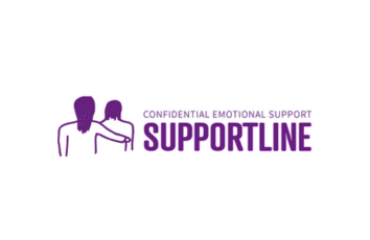Anger
Anger is a natural human emotion that we all experience from time to time. It can serve an important purpose, for example telling us when something is wrong and driving us to act in response to this.
Anger can become a problem when it starts to have a negative impact on yourself or on the people around you. You might find that your anger is affecting your health and wellbeing, or that your expression of anger is impacting your relationships with other people in your life.
+ What is anger?
‘Anger’ is a broad term that could describe a wide range of feelings such as:
- insulted
- betrayed
- jealous
- annoyed
- infuriated
- frustrated
- persecuted.
It can occur alongside other feelings including:
- sadness
- embarrassment
- guilt
- disappointment.
+ Common physical changes
When we become angry, we often experience physical changes. Although these are different for everybody, common experiences include:
- A fast heartbeat
- Tense muscles
- Feeling hot / flushed skin
- Dizziness
- Clenched jaw
- Sweating
- Tight chest
- Shaking
- Weak legs
- Churning stomach
+ Angry thoughts?
We might also experience angry thoughts such as:
- “They deserve what’s coming to them”
- “I can’t trust any of them”
- “They’ve ruined everything”.
+ Angry behaviour
Different people behave differently when they are angry. For some people, anger can lead to:
- shouting
- swearing
- slamming a door
- damaging an object
- saying something cruel, or
- verbally or physically attacking somebody.
Sometimes people can direct their anger inwards, for example through using substances or harming themselves. Anger can affect our health and wellbeing, relationships, employment, and could get us into trouble.
+ What causes anger?
We might feel that anger is often triggered by external factors, for example: somebody insulting you, getting cut off whilst driving, something not working properly. Anger might also be triggered by internal factors such as specific thoughts or upsetting memories.
Our thoughts, emotions, behaviours, and bodily sensations are all connected. This helps to explain why we can often continue to feel angry, even after the initial situation has passed.
Our past experiences also play a big role in how we experience and deal with anger: for example, how we learned to manage strong emotions at a younger age, what we have done to feel better in the past. We know that people who have experienced trauma or are under stress might feel less able to deal with challenging situations before feeling angry and overwhelmed.
How to control anger?
Getting a better understanding of anger is important in being able to control this.
+ Reducing Physical Sensations
When you start to recognise warning signs in your body, there are a few things that might help to keep these under control:
- Practise relaxation. These might include taking a walk, having a bath, or listening to music.
- Try to slow down your breathing if you recognise that this is becoming fast: for example, try breathing in for the count of 3 and then out again for the count of 3.
- Some people also benefit from imagery, e.g. imagining themselves in a calm and relaxing location, or imagining the anger draining out of their body like a drainpipe.
- Some people benefit from exercise where they can direct their energy and attention towards this.
- Consider a possible distraction from the situation, for example switching to another activity like reading a book or watching TV, or taking a cold shower.
Keep a note of which of these work for you. On a scale of 1-10, how angry did you feel at first? What about after you tried one of these skills?
+ Coping with Angry Thoughts
Notice what thoughts flash into your mind when you feel angry.
Do these make you feel worse?
Do you notice yourself having these same thoughts again and again? (e.g. “they don’t care about anyone but themselves”, “I’ve been taken for a fool”, “I am the absolute worst”)
Consider how you might be able to change these thoughts in a more balanced or helpful way.
“They sometimes act disrespectfully, but at other times they do not”
“That comment upset me, but they are usually kind to me”
“I’ve made a mistake, but that’s not a reflection of me as a person”
+ Behaviours
Think about what you can do when you become angry.
Making a note of the situation surrounding your anger can help you to understand your behaviours better, and whether or not you want to make changes to these. Consider:
- What happened before you got angry?
- What were your thoughts and feelings in that moment?
- What did you do?
- What were the consequences that came from this?
If you find that you’re unhappy with your behaviours, think about other options of things that you can do instead.
- Reducing physical sensations
- Changing your thoughts
- Consider whether it is possible to stop and take time out from the current situation, e.g. by walking away for a moment or by counting to 10 in your mind.
- Think about trying to talk calmly with the other person rather than acting;
Next time you feel angry and try responding differently, make a note about how things went. Did it work better for you?
Taking the time to reflect on your personal experiences of anger can help. You can track this with a pen and paper or on your phone. There are also free apps listed below which offer ways to track your anger.
Where to find support

Resources for people who engage in abusive behaviours towards a partner
Resources for people who engage in abusive behaviours towards a partner. The resources aim to help you understand your abusive behaviours and start to contain them.

Men’s Minds Matter – Men and Anger
Men and Anger? Anger management for men resources.

Mind – How to cope with anger
How to cope with anger? Explains anger, giving practical suggestions for what you can do and where you can go for support.

NHS – Reframing unhelpful thoughts
Reframing unhelpful thoughts. In time, this can really make a difference to our mental health and wellbeing.

Free Resources
Resources to guide you in practising mindfulness and body scan exercises

Relaxation resources including visualisation and progressive muscle relaxation exercises
Audio files of relaxation techniques that can help relieve stress and gain a sense of well-being.

Samaritans
Helpline open 24/7. Phone support 116 123. Email support: jo@samaritans.org or mail: Freepost SAMARITANS LETTERS

SupportLine
Supportline is a helpline offering emotional support to people of any age. Email for support to info@supportline.org.uk or call 01708 765200

Reading Well
Self-help books to support mental health, which are available to borrow from your local library.
Apps and videos

AIMS for Anger Management
The AIMSapp is based on the Anger and Irritability Management Skills online self-help course. The app provides users with education about anger, opportunities for finding support, the ability to create an anger management plan, anger tracking, and tools to help manage angry reactions.

Quit Anger: Anger Management
Contains further reading about anger, access to tools including breathing exercises, guided meditation, and relaxing music, anger log feature allows you to record triggers, warning signs, and track anger level. Available for iPhone and iPad

Samaritans Self-Help
Includes a tool to track your mood and identify patterns. Access to a range of techniques to manage difficult feelings.

SilverCloud
SilverCloud is an online therapy platform that uses proven methods like Cognitive Behavioural Therapy (CBT) to help people manage their problems by encouraging them to change the way they think and behave.

How the Brain Works with Anger
To find out more about how our brain works with anger you can watch short video.

Anger Warning Signs
This short video explains what the Anger Thermometer means and how to use it to manage anger.